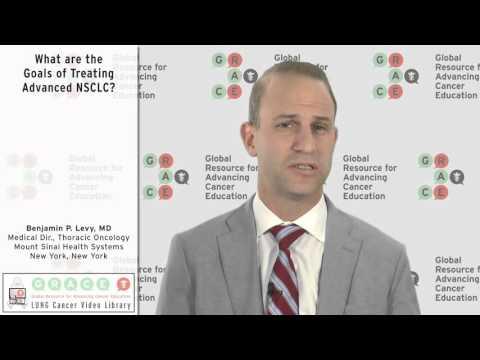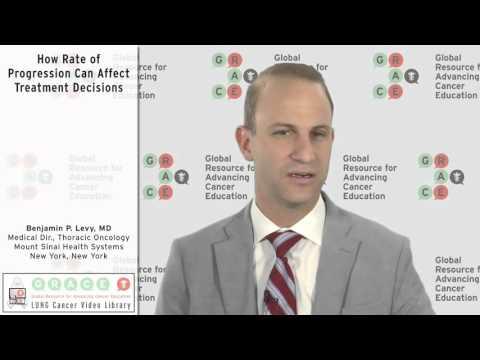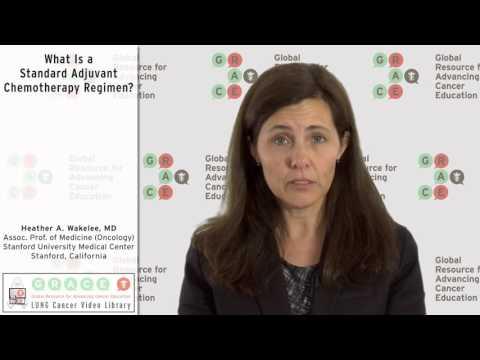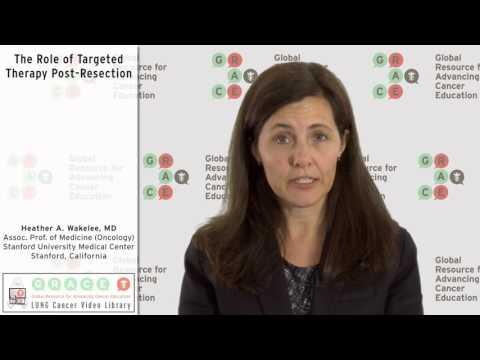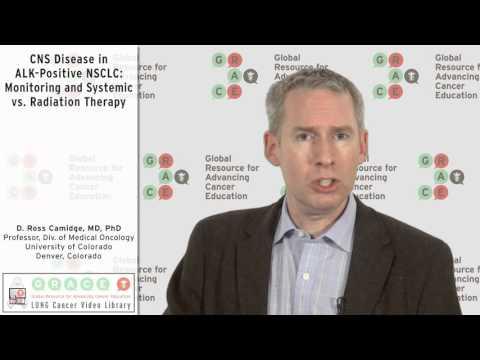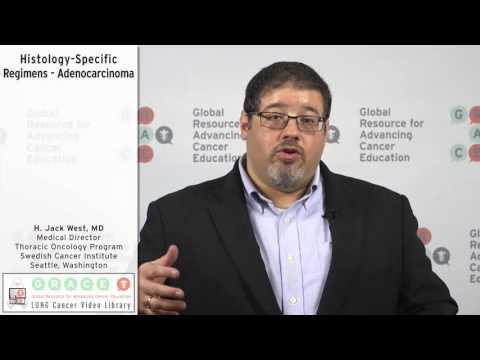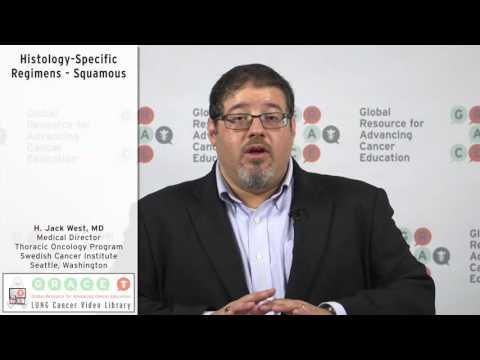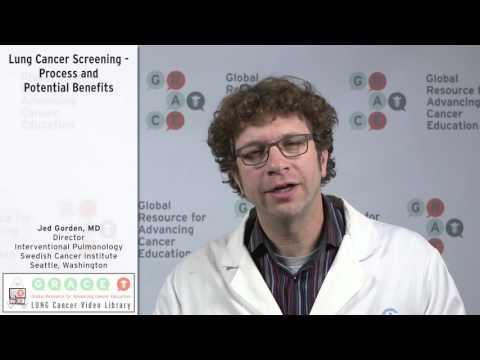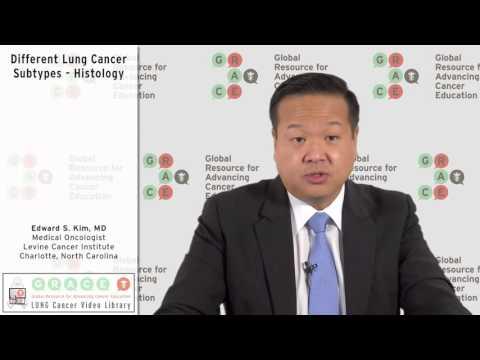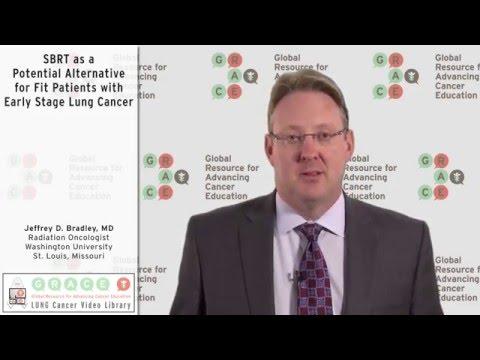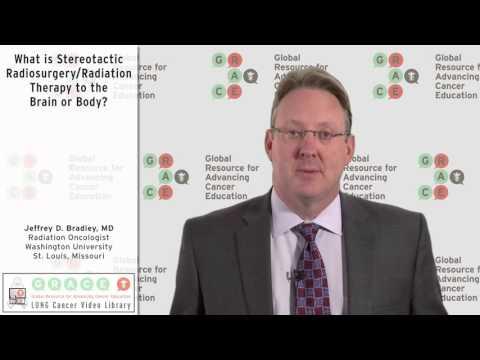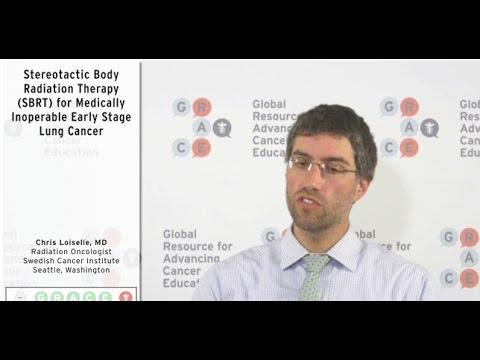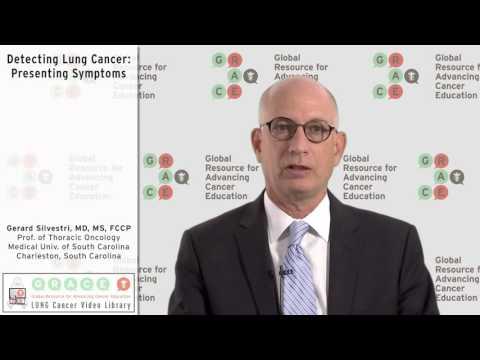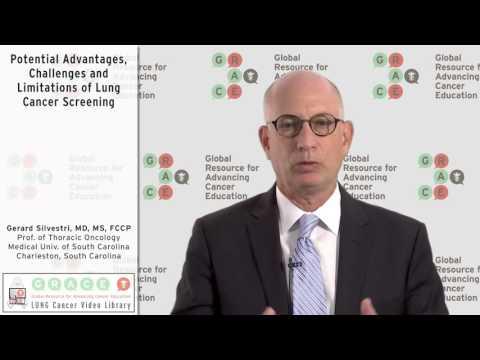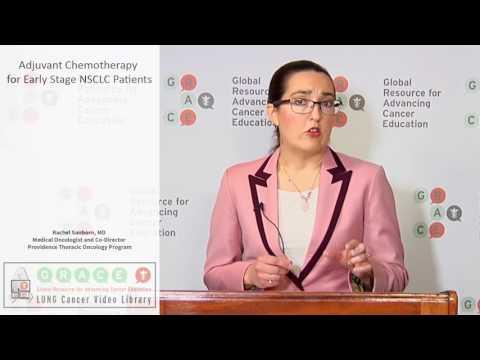Transcript I think there are several goals when treating a patient with advanced non-small cell lung cancer. For one I think we want to extend life, two is I think we want to palliate symptoms, and three is I think we want to improve quality of life. So all three of those goals are achievable, I
Video Library
Search the Video Library
Video Language
Filter by Cancer Type:
Displaying Results 31 - 45 of 123
Transcript I think we know a lot now about how to treat patients with advanced stage lung cancer, and there are several things that we factor in when we treat patients. One is clearly the genetic makeup of their tumor — we tend to look at this when we’re trying to decide on a targeted drug for these
Dr. Heather Wakelee, Stanford University Medical Center, lists standard adjuvant chemotherapy regimens, comparing their administration and uses.
Dr. Heather Wakelee, Stanford University Medical Center, evaluates the lack of evidence for the use of targeted therapies after surgery, and describes ongoing trials attempting to resolve that issue.
Dr. Ross Camidge, University of Colorado, discusses management of CNS progression for ALK-positive NSCLC including monitoring frequency and preferences between systemic and radiation therapy.
Dr. Jack West, Swedish Cancer Institute, addresses the issue of choosing a first-line chemotherapy regimen based on an adenocarcinoma histology.
Dr. Jack West, Swedish Cancer Institute, reviews the choices for a first-line chemotherapy regimen based on a squamous histology.
Dr. Jed Gorden, Swedish Cancer Institute, reviews the lung cancer screening process, including low-dose CT scanning, smoking cessation, follow-up testing and counseling, and describes the potential benefits.
Dr. Edward S. Kim from the Levine Cancer Institute in Charlotte, NC defines the concept of cancer histology and gives examples of several lung cancer subtypes.
Dr. Jeffrey Bradley, Radiation Oncologist at Washington University in St. Louis, provides evidence for the use of stereotactic body radiation therapy as an alternative to surgery for operable early stage lung cancer.
Dr. Jeffrey Bradley, Radiation Oncologist at Washington University in St. Louis, describes the use of stereotactic radiosurgery and stereotactic radiation therapy.
Dr. Jeffrey Bradley, Radiation Oncologist at Washington University in St. Louis, describes the history and current use of stereotactic radiation therapy for inoperable lung lesions.Dr. Jeffrey Bradley, Radiation Oncologist at Washington University in St. Louis, describes the history and current use
Dr. Gerard Silvestri, Medical University of South Carolina, describes some of the typical presenting symptoms of lung cancer.
Dr. Gerard Silvestri, Medical University of South Carolina, discusses the benefits and drawbacks of lung cancer screenings.
Dr. Rachel Sanborn, Providence Thoracic Oncology Program, discusses the reasons behind using adjuvant chemotherapy for early stage NSCLC patients. Clinical studies have shown that adding chemotherapy after surgery for lung cancer can indeed improve survival. Adjuvant Chemotherapy for Early Stage

